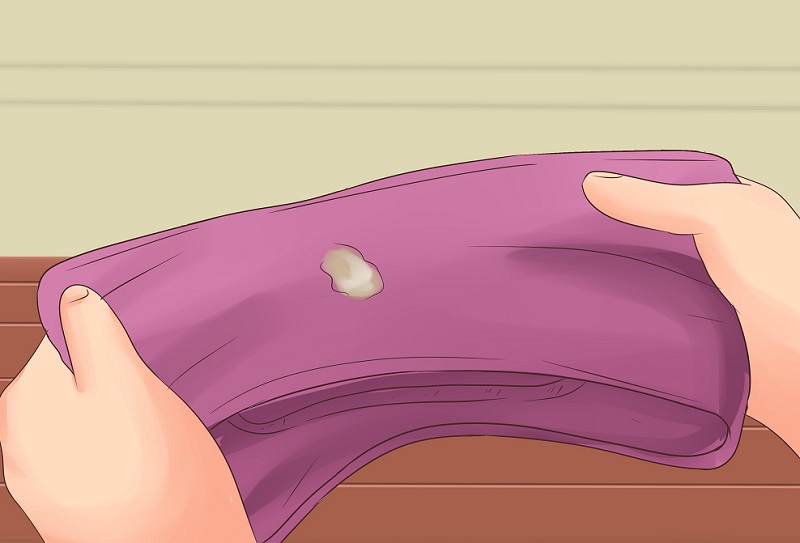Vaginal discharge is a common occurrence in women, and in most cases, is healthy. This usually means your vagina is functioning properly. Your vagina has an acidic environment to keep infections at bay. It also secrets discharge that helps get rid of any bacteria or dead cells. However, it is important to understand that your vaginal discharge is usually clear, foamy and odorless. If you are experiencing cottage cheese discharge,it may be a symptom of infections. It is a good idea to go see your doctor to rule out the possibility of having an infection.

What Possibly Causes Cottage Cheese Discharge?
In case you are noticing heavy cottage cheese discharge, this could be due to a yeast infection. You develop this infection due to an overgrowth of the fungus Candida. You will also notice some other symptoms such as soreness and itchiness around your vagina. The discharge may not have a strong smell, but it may smell a bit yeasty. You will also experience a burning sensation when urinating or having vaginal intercourse. Swelling and redness of the vulva and vaginal pain are also some of the symptoms you experience due to a yeast infection.
Women of all ages can get yeast infections, but some women are at a greater risk. Your risk for Candida or a yeast infection is higher if you are pregnant, use vaginal sprays, take hormonal birth control pills containing estrogen or have a weak immune system.
How to Relieve Cottage Cheese Discharge
The only way to stop cottage cheese dischargeis to treat your vaginal infection. You can take self-care measures to resolve the issue, but if the issue persists and self-treatment does not work, you should seek medical assistance as soon as possible.
1. Self-Care
Don't use soap when cleaning your vaginal area. Simply rinsing it with water is enough. You should also avoid sexual intercourse if you feel any discomfort. However, you can use a water-soluble lubricating jelly to help relieve the pain by reducing friction. Taking a warm bath or simply sitting in warm water may help reduce swelling of the genital area. Be sure to avoid rubbing the affected area.
2. Home Remedies
Boric acid may help get rid of your infections as well as cottage cheese discharge. This usually works great to treat less common strains of Candida. You have to use this vaginal treatment twice a day for a couple of weeks. Similarly, you can relieve your symptoms by applying or eating yogurt. Many women have claimed to achieve better results from yogurt than placebo and vaginally applied clotrimazole.
3. Medical Treatments for Uncomplicated Yeast Infection
You can treat your uncomplicated yeast infection and stop cottage cheese dischargeby trying the following treatment options.
- Short-Course Vaginal Therapy
Your doctor may prescribe certain antifungal medications such as ointments, creams, suppositories and tablets to clear your infection. Some of the most effective medications are clotrimazole, butoconazole, terconazole and miconazole. They are quite effective but may produce certain side effects such as irritation or burning during application. It is advisable not to rely on latex condoms or diaphragms for birth control when you are using oil-based creams and suppositories.
- Single-Dose Oral Medication
Your doctor may give you a one-time dose of fluconazole, an oral antifungal medication. You may also take two single doses of this antifungal medication three days apart to alleviate pain, irritation and discharge.
4. Medical Treatments for Complicated Yeast Infection
If your symptoms are severe and you need a treatment for your complicated yeast infection, you may consider opting for the following treatment options.
- Long-Course Vaginal Therapy
You may consider taking azole medications for 7-14 days to clear your infection. It is available in ointment, cream, suppository or tablet form.
- Multi-Dose Oral Medication
It is not uncommon for doctors to prescribe 2-3 doses of fluconazole to treat your infection. You have to take it orally. It is not a suitable choice for pregnant women though.
- Maintenance Plan
If you have recurrent cottage cheese discharge because of yeast infections you may have to stick to a medication routine. You will have to begin your maintenance therapy after your yeast infection is no longer present. In some cases, you need to go for a longer treatment of 14 days and then begin with your maintenance therapy. Your doctor may prescribe oral fluconazole tablets that you have to take once a week for six months. Some doctors opt for clotrimazole that you have to use vaginally every week. It is usually not required for your partner to seek medical help if you have recurrent yeast infections, but he will be better off using condoms during intercourse.
What If I Am Pregnant?
You are more susceptible to developing a yeast infection during pregnancy mainly because your immune system is depressed. If you notice cottage cheese discharge or experience other symptoms of a yeast infection, see your doctor immediately. Your doctor will recommend any OTCs, such as Monistat or Terazol, or prescribe antifungal medications suitable during pregnancy. It is important to insert those suppositories into your vagina for a week in a row. Always complete the full course to avoid any complications.
- Does It Affect My Baby?
A yeast infection will not affect your developing baby, but your baby may contract it when you go into labor. If that does happen, you may notice your baby develop a yeast infection in the mouth called thrush. Your doctor will guide you more about it.
